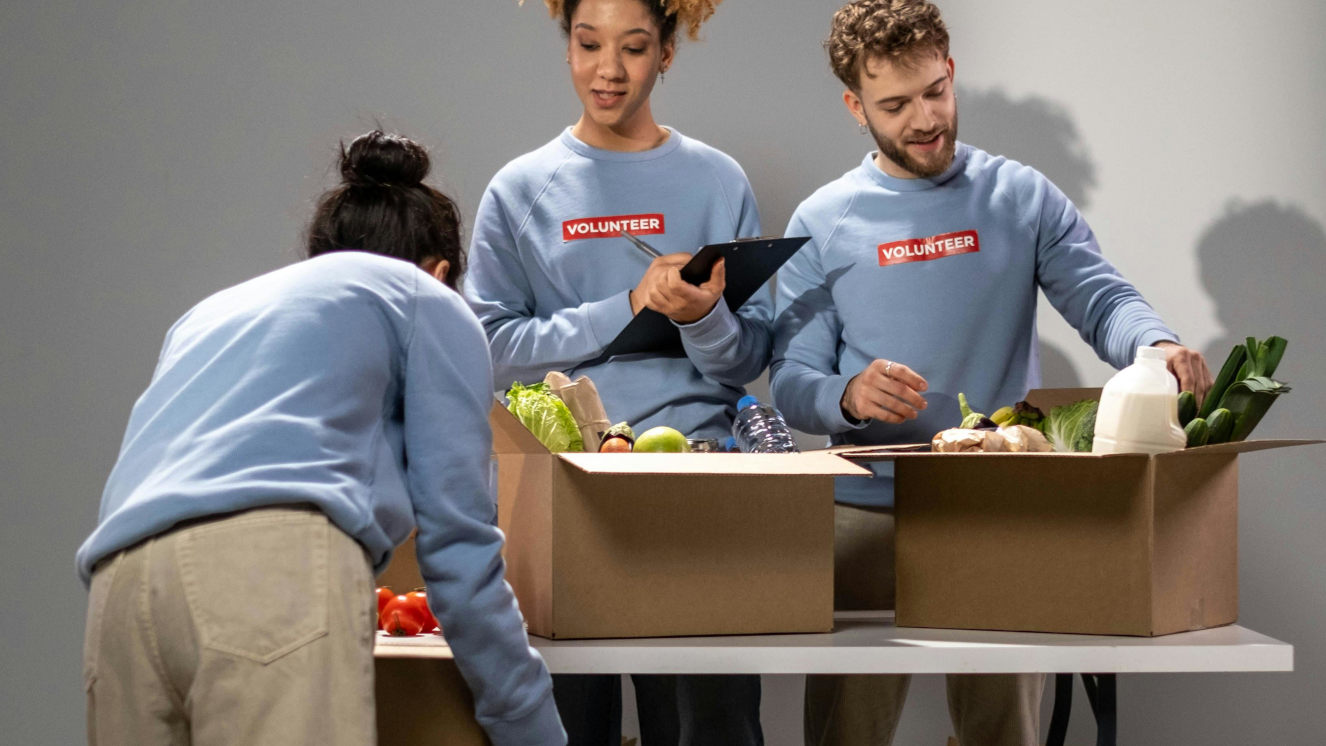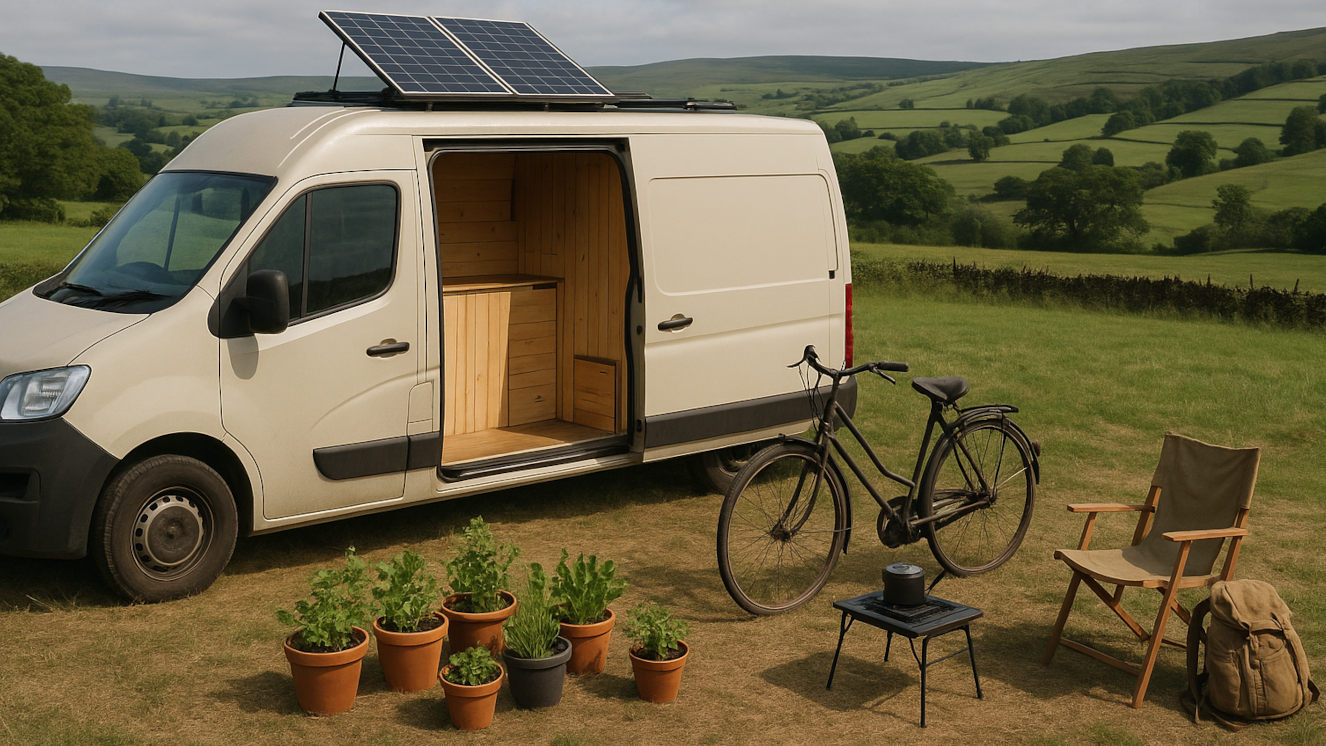Saving for a bricks-and-mortar home is no small feat, especially when you’re juggling rent, bills, and the ever-rising cost of living. For many in the UK, the dream of homeownership can feel like a distant mirage. But frugal living doesn’t mean cutting corners on ethics or sustainability—it’s about making smart, conscious choices that align with your values and long-term goals. One such choice is the ethical use of food banks, which can help you save money, reduce waste, and support your community, all while keeping your eyes on your property ladder goals.
This module will guide you through how to use food banks responsibly, debunk myths, and highlight how this practice can fit into a sustainable, frugal lifestyle. We’ll also explore how it can free up funds to help you save for your forever home—without compromising your principles.
What Are Food Banks, and Why Do They Exist?
Food banks are community-driven charities that collect and distribute food to people who need it most. In the UK, organisations like The Trussell Trust and FareShare run networks of food banks to tackle food poverty and reduce food waste. They partner with supermarkets, local businesses, and volunteers to redistribute surplus food—items that might otherwise end up in landfills.
The rise of food banks reflects both a societal challenge (food insecurity) and an opportunity (sustainable resource use). According to The Trussell Trust, their network distributed 2.1 million food parcels in 2023/24, a stark reminder of the cost-of-living crisis. But food banks aren’t just for those in crisis—they’re also a tool for anyone looking to live frugally and sustainably.
| Key Facts About UK Food Banks | Details |
| Number of Food Banks | Over 2,600 (Trussell Trust and independent) |
| Food Distributed Annually | ~2.1 million parcels (Trussell Trust, 2023/24) |
| Primary Users | Low-income households, but open to all in need |
| Sustainability Impact | Diverts millions of kilos of food from landfills |
Ethical Use: Can You Use a Food Bank?
Let’s address the elephant in the room: Is it okay for someone saving for a house to use a food bank? The short answer is yes—if done ethically. Food banks are designed to help anyone struggling to afford food, not just those in extreme poverty. If your budget is stretched thin by rent, student loans, or other essentials, using a food bank can be a legitimate way to ease the pressure.
However, ethical use means respecting the system:
- Check Eligibility: Most food banks require a referral from a GP, social worker, or Citizen’s Advice. Be honest about your situation—referral agencies are trained to assess need without judgment.
- Don’t Overuse: Take only what you need. Food banks rely on limited donations, so grabbing more than necessary can strain resources for others.
- Give Back: If you’re using a food bank, consider volunteering or donating when your finances improve. This creates a cycle of community support.
- Prioritise Surplus Food: Many food banks distribute near-expiry or surplus items. Using these helps reduce waste, aligning with sustainability goals.
Myth-Busting: Some assume food banks are only for the homeless or unemployed. Not true. The Trussell Trust notes that 70% of food bank users are in work but still can’t make ends meet. If you’re cutting back on groceries to save for a deposit, you’re exactly who these services can support.
How Food Banks Support Frugal Living
Using a food bank can shave hundreds of pounds off your annual grocery bill, freeing up cash for your house deposit. Here’s how it fits into a frugal lifestyle:
- Lower Grocery Costs: A typical food parcel includes staples like pasta, rice, tinned goods, and sometimes fresh produce. This can cover a week’s worth of meals, saving you £20–£50 per parcel.
- Meal Planning: Food parcels encourage creativity. You might get a random mix of ingredients, pushing you to plan meals around what’s available. Apps like Supercook can help you find recipes based on what’s in your cupboard.
- Reducing Waste: By using surplus food, you’re directly contributing to sustainability. FareShare estimates that their network saves 50,000 tonnes of CO2 emissions annually by redistributing food.
- Community Connection: Food banks often host workshops or connect you with local resources, helping you learn other frugal skills like budgeting or energy-saving.
| Frugal Living Benefits | How Food Banks Help |
| Save Money | Free food reduces grocery spending |
| Sustainable Choices | Uses surplus food, cuts waste |
| Build Skills | Encourages meal planning and budgeting |
| Community Support | Connects you to local resources |
Sustainability: The Bigger Picture
Food banks aren’t just about saving money—they’re a cornerstone of sustainable living. In the UK, 8.1 million tonnes of food are wasted annually, according to WRAP (Waste and Resources Action Programme). Food banks help by:
- Redistributing Surplus: Supermarkets donate items close to their sell-by date, which food banks turn into nutritious meals.
- Lowering Carbon Footprints: Less food in landfills means fewer methane emissions.
- Promoting Circular Economies: Food banks embody the “reduce, reuse, recycle” ethos, keeping resources in use.
As a Gen Z or Millennial, you likely care about the planet as much as your bank account. Using food banks aligns with both, letting you live lightly while saving heavily.
Integrating Food Banks into Your Savings Plan
Let’s crunch some numbers. If you save £30 a week by using a food bank for one or two meals a day, that’s £1,560 a year. Over three years, you’ve got £4,680—a solid chunk of a house deposit, especially if paired with other frugal habits like cutting subscriptions or sharing housing.
Here’s a step-by-step plan to make it work:
- Get Referred: Contact Citizen’s Advice or your GP to discuss your financial situation. They’ll guide you to a local food bank.
- Budget Smartly: Redirect the money you save on groceries into a high-interest savings account or a Lifetime ISA (LISA), which offers a 25% government bonus for first-time buyers.
- Track Progress: Use apps like Moneybox or Plum to monitor your savings and stay motivated.
- Stay Ethical: Volunteer at the food bank or donate non-perishable items when you can. It’s about balance.
Common Concerns and How to Address Them
| Concern | Solution |
| “I feel guilty using a food bank.” | Be honest with referral agencies. If they approve you, you’re eligible. |
| “What if I get judged?” | Food bank staff and volunteers are trained to be non-judgmental. Your need is valid. |
| “The food might not suit my diet.” | Many food banks offer vegan, gluten-free, or halal options—just ask! |
| “I don’t want to rely on it forever.” | Use food banks as a temporary tool while you build your savings. |
Wrap it Up
Every penny saved brings you closer to that bricks-and-mortar dream. Food banks aren’t a crutch—they’re a strategic tool to stretch your budget without sacrificing your values. By using them ethically, you’re not just saving money; you’re supporting a system that fights food waste and strengthens communities. For Nomadic Home Savers, this is a way to live sustainably, save smartly, and keep your eyes on the prize: a place to call your own.
Food Poverty & Emergency Support
- The Trussell Trust: Annual Report 2023/24
Reveals a record 3.1 million emergency food parcels distributed in 2023/24 (1.1 million for children), highlighting a 4% rise in demand despite falling inflation. Key insights include regional disparities (e.g., 17% surge in London) and systemic drivers like benefit delays and low incomes 11. - Citizen’s Advice: Food Bank Referrals
Step-by-step guide to accessing UK food banks, including referral requirements (via GPs, councils, or Citizens Advice) and voucher systems. Notes exceptions for non-referral food banks (e.g., church-run) and delivery options for rural users 414.
Food Waste Reduction & Sustainability
- FareShare: Food Waste and Sustainability
Rescues surplus food (1,233+ tonnes in 2023) to create meals for charities. Initiatives include solar-powered kitchens, electric vehicle trials, and composting programs to cut landfill waste 12. - WRAP: Food Waste Statistics
November 2023 update on UK food waste (2021 data), tracking progress toward Courtauld Commitment 2030 targets. Covers household waste, farm-level surplus, and redistribution trends 3. - UK Government Food Waste Hierarchy (Bonus addition)
Legal framework prioritizing waste prevention, redistribution, and recycling (e.g., anaerobic digestion). Mandates compliance for businesses, with penalties for landfill misuse 8.
Practical Tools for Households
- SuperCook: Recipe Generator
AI-powered app suggesting recipes based on ingredients you already own, reducing food waste. Features voice-input pantries and filters for dietary needs 10. - Love Food Hate Waste (Bonus addition)
WRAP’s campaign offering portion planners, storage tips, and recipes to extend food shelf life.



